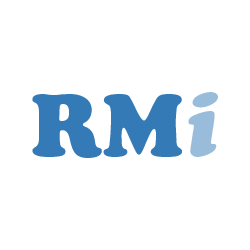December 6, 2015 12:31pm
Data suggests that inhibition of PI3K during ex vivo expansion may generate a superior anti-BCMA CAR T cell product for clinical use; this approach could potentially apply to the manufacture of CAR T cell therapies against other oncology targets.
In a preclinical BCMA+ multiple myeloma xenograft model, a single IV administration of bb2121 anti-BCMA CAR T cells resulted in rapid and sustained elimination of the tumors with 100% survival, while a month-long course of anti-myeloma therapy Velcade® (bortezomib) only delayed tumor growth.
BLUE’s T cell manufacturing process has the potential to overcome significant challenges associated with personalized medicine by reducing the effects of variability while maintaining potency in autologous cellular drug product manufacturing.
Abstract #1893: Manufacturing an Enhanced CAR T Cell Product by Inhibition of the PI3K/Akt Pathway During T Cell Expansion Results in Improved In Vivo Efficacy of Anti-BCMA CAR T Cells
BLUE explored the potential for culture modifications to improve the therapeutic potential of CAR T cells without adding complexity to manufacturing. BLUE tested this hypothesis using CAR T cells specific to B cell maturation antigen (BCMA) manufactured using standard IL-2 culture with an inhibitor of PI3K added to the media, or with IL-7 and IL-15, in place of IL-2;
- In an in vivo aggressive lymphoma model, mice treated with anti-BCMA CAR T cells cultured only with IL-2 experienced no effect on tumor growth and succumbed to the tumors within two weeks after treatment; anti-BCMA CAR T cells grown in IL-7 and IL-15 also did not affect tumor growth. In contrast, mice treated with anti-BCMA CAR T cells cultured with IL-2 and an inhibitor of PI3K experienced complete and long-term tumor regression;
- In an in vivo multiple myeloma model, mice received a single administration of anti-BCMA CAR T cells cultured under various conditions; all treatment groups demonstrated tumor regression regardless of culture conditions. In a model of tumor relapse, two weeks after tumor clearance, surviving mice were re-challenged with the same multiple myeloma tumors on the opposite flank; only animals that had been treated with anti-BCMA CAR T cells cultured with the PI3K inhibitor were able to resist subsequent tumor challenge.
Abstract #3094: A Novel and Highly Potent CAR T Cell Drug Product for Treatment of BCMA-Expressing Hematological Malignancies
BLUE has developed a CAR targeting BCMA (bb2121) that consists of an extracellular single chain variable fragment scFv antigen recognition domain derived from antibodies to BCMA linked to CD137 (4-1BB) co-stimulatory and CD3zeta chain signaling domains.
- Based on receptor density quantification, bb2121 can recognize tumor cells expressing less than 1,000 BCMA molecules per cell;
- In a preclinical BCMA+ multiple myeloma xenograft model, a single IV administration of bb2121 anti-BCMA CAR T cells resulted in rapid and sustained elimination of the tumors with 100% survival, while a month-long course of anti-myeloma therapy Velcade® (bortezomib) only delayed tumor growth;
- Using flow cytometry and immunohistochemistry, bb2121 T cells were shown to rapidly target and infiltrate tumors, and T cell expansion was correlated with tumor regression;
- bb2121 anti-BCMA CAR T cells also induced xenograft regression and enhanced survival in a preclinical model of advanced Burkitt’s lymphoma.
Abstract #3243: Characterization of Lentiviral Vector Derived Anti-BCMA CAR T Cells Reveals Key Parameters for Robust Manufacturing of Cell-Based Gene Therapies for Multiple Myeloma
Overview and results, presented by BLUE's Graham W.J. Lilley, M.Sc.include:
- Successful personalized medicine will require robust and reproducible drug product manufacturing. A series of experiments were conducted to determine whether variations in anti-BCMA CAR surface expression resulted in changes in the activity of CAR T cells;
- T cells transduced with varying amounts of virus to yield different amounts of CAR surface expression were diluted with donor-matched un-transduced cells to achieve a uniform population of T cells containing 26 ± 4% anti-BCMA CAR T cells. When exposed to tumor, these CAR T cell populations exhibited no difference in cytotoxicity against BCMA-expressing cells;
- All T cell productions easily achieved a level of anti-BCMA CAR expression that resulted in potent anti-BCMA activity, thus potency of the final drug product was shown to be independent of total anti-BCMA CAR expression on the cell surface.
BLUE closed UP +$5.05 to $83.66 and is down -$0.26 in the aftermarket pre three (3) ASH presentations




